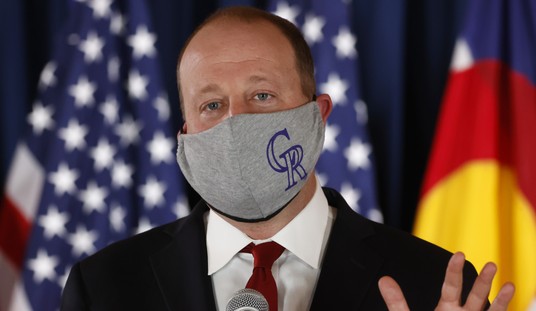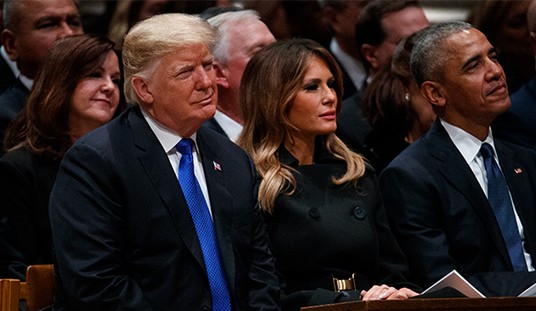Given the long history of America’s two-party system, the historical odds of the U.S. becoming a multi-party political system like most European countries weren’t high. Those odds, however, may be increasing, as the leadership in both parties confronts an increasingly hostile wing. Those wings find far deeper support among the activist voting base of the parties. Safe-seat redistricting has lead to the rise of these wings.
As far-fetched as it sounds, might America be headed towards a political system comprised of three, perhaps four political parties? Recent events create a possible foundation for such an outcome.
As Philip Bumo noted in the Washington Post, the membership in Congress has become less Republican and Democratic and more Republican, Conservative, Democratic, and Liberal. The establishment of each party focuses on the traditional political parties, while the TEA Party and Libertarian activists on the Right and the Occupy Wall St./Hollywood activists on the Left aim their energy and money at the more ideological members of the parties.
For the foreseeable future, it is hard to imagine a split in which conservatives abandon Speaker [mc_name name=’Rep. John Boehner (R-OH)’ chamber=’house’ mcid=’B000589′ ] and Senate President [mc_name name=’Sen. Mitch McConnell (R-KY)’ chamber=’senate’ mcid=’M000355′ ]. After all, having just won control of Congress, it wouldn’t make sense to throw it away. Yet.
That sentiment, however, could rapidly fade if Republican leaders don’t aggressively push back on President Barack Obama and pass major conservative policy ideas. Conservatives (including libertarians) are eager to fight ideological battles on principle despite not holding the presidency. Heritage Foundation President and Former Senator Jim DeMint, along with Senators [mc_name name=’Sen. Ted Cruz (R-TX)’ chamber=’senate’ mcid=’C001098′ ] and [mc_name name=’Sen. Rand Paul (R-KY)’ chamber=’senate’ mcid=’P000603′ ], as well as Representatives [mc_name name=’Rep. Jim Jordan (R-OH)’ chamber=’house’ mcid=’J000289′ ] and [mc_name name=’Rep. Mick Mulvaney (R-SC)’ chamber=’house’ mcid=’M001182′ ] form the de facto leadership of the Liberty Party and these leaders want to fight.
In fact, just this past week, Congressman Jordan created a new conservative policy group to rival the Republican Study Committee, with the aim of forcing Republicans to the right. This new conservative faction could exceed thirty members.
An even more powerful element that could drive conservative and liberal factions to split from the Republicans and Democrats is the availability of funding. With the influx of multi-millionaire and billionaire political donors who are increasingly at odds with the establishments of both parties, it would only take a handful to fund a split. Imagine if the Koch Brothers decided they could get the greatest return from their political investments by funding a split and the birth of the Liberty Party.
While various state rules determine what happens if elected officials switch parties mid-term, it is not inconceivable that a faction of conservatives in the U.S. House or Senate figure out that they may have more power outside of the Republicans than inside of it. After all, Speaker Boehner currently controls the U.S. House with a 246-188 Republican majority. What would happen if 30 members formed a new political party and took their votes for Speaker away from Boehner? A small, but meaningful group of Republicans didn’t vote for him already. With just 216 votes, the new party would be in a position to determine who was Speaker and obtain strong commitments on future legislative actions and committee assignment even if the Speaker remained a Republican.
It would take a far smaller faction – just four – to wrest control from U.S. Senate Majority Leader [mc_name name=’Sen. Mitch McConnell (R-KY)’ chamber=’senate’ mcid=’M000355′ ], or at least bargain for more conservative legislation and assignments.
With funding and the power of incumbency, defeating these rebel members in the next election wouldn’t be easy. A great example is the money and effort put in in 2014 to defeat [mc_name name=’Rep. Justin Amash (R-MI)’ chamber=’house’ mcid=’A000367′ ] from Michigan. Despite a well-financed primary opponent, Amash won reelection by more than 14-points. For many of the conservative members, it wouldn’t matter to their constituents if they ran in the Republican Party or Liberty Party. In fact, in non-presidential election years, the activist base shows up to vote far more than the establishment.
In the United Kingdom, the United Kingdom Independence Party came from nowhere to snatch two seats from the Conservatives. Its likely UKIP will grab a strong minority in the May elections, thereby enabling it to drive control of Parliament. Our system is not a parliamentary system, but the two-party system is not etched in stone either. As America becomes more factionalized, it isn’t out-of-the-question that a minority party could arise in Congress to give the wing more power than possible in the current paradigm.
In the age of uncertainty, it wouldn’t take much for the unlikely to rapidly become likely.
Matt A. Mayer is the Chief Operating Officer of the Liberty Foundation of America (www.libertyfound.org).













Join the conversation as a VIP Member